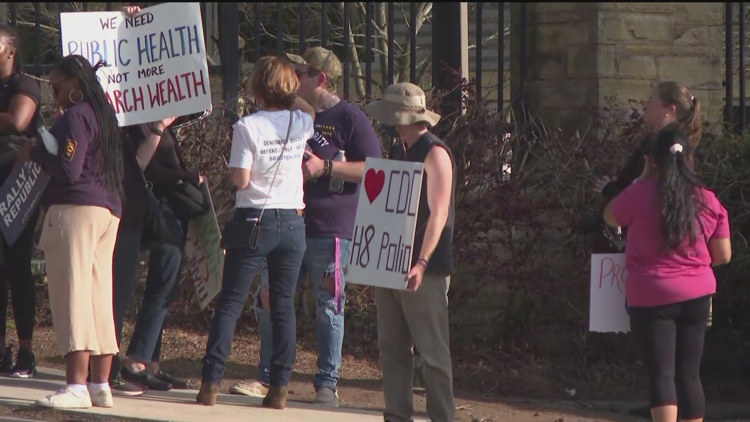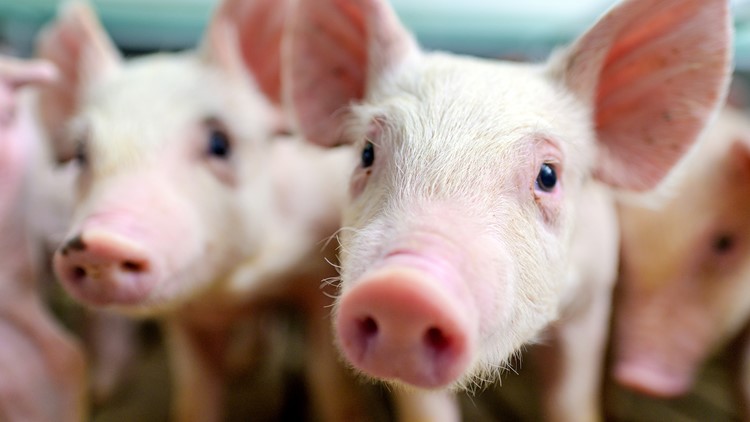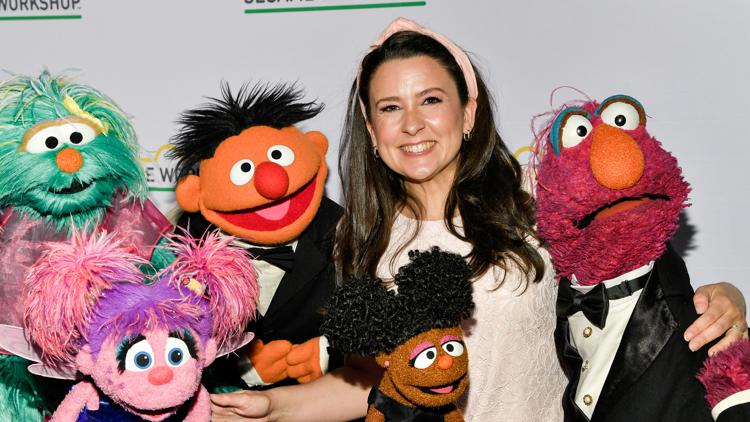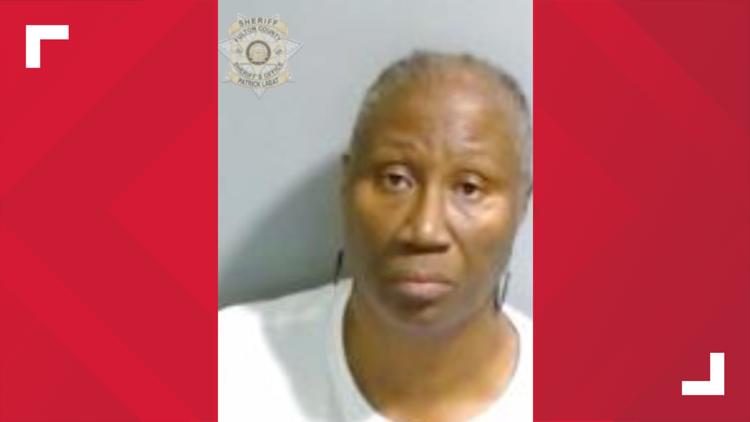Acrimonious Texas House Speaker race divides state's Republicans
An acrimonious race for Speaker of the Texas House is splitting the state GOP — and forcing a confrontation between the body’s warring Republican camps. Competing Republican state Reps. David Cook and Dustin Burrows have each declared victory in the contest, along with a mandate for very different visions of Texas's political future, and the role...

An acrimonious race for Speaker of the Texas House is splitting the state GOP — and forcing a confrontation between the body’s warring Republican camps.
Competing Republican state Reps. David Cook and Dustin Burrows have each declared victory in the contest, along with a mandate for very different visions of Texas's political future, and the role of Democrats as its minority party.
The fight comes as part of a years-long battle between the state’s old Republican establishment and an ascendant far-right “reformer” movement backed by Texas's leading executives — as well as national Republicans like Donald Trump Jr., the son of President-elect Trump.
On Monday morning, the president-elect's son and adviser threw his support behind Cook, a Tarrant County Republican who rose to prominence in his challenge against former state House Speaker Dade Phelan (R).
“It’s unbelievable what is happening in Texas right now,” Donald Trump Jr. wrote on the social platform X, pointing to what he described as “a group of so-called Republicans cutting a deal with liberal Democrats to elect a speaker instead of uniting behind the Republican nominee.”
Burrows, a conservative Lubbock Republican vying against Cook for the Speakership, has garnered the support of a number of the state's Democratic lawmakers in the race.
Burrows previously angered Texas's largely urban Democratic caucus as a primary architect of H.B. 2127, a 2023 bill that stripped authority from city governments. But he has not signed on to the reformer camp’s push to bar Democrats from committee chair positions in the state House, and dozens of Democrats were on the list of his sworn supporters he released over the weekend.
“The Speaker’s race is over,” Burrows told reporters over the weekend, according to The Texas Tribune. “I have secured enough to be Speaker of the House for the next session.”
Burrows claimed to have secured 76 of the chamber's 150 votes from a combination of Republican and Democratic members. It’s not clear how he arrived at this number — both Republicans and Democrats have said they were included in error — but that majority would be enough to secure the Speakership.
Accurate or not, Burrows's claim of victory infuriated the reformers, who now control the Republican Party of Texas.
That faction backs Cook, who has claimed victory as well, and accused Burrows's supporters of trying to sabotage the process. The Tarrant County Republican won the nomination of the state party on Saturday, though that victory came only after 26 Burrows supporters left the room.
“I will never walk out on the people of Texas,” Cook wrote Monday morning on X. “I will show up with integrity every day to get the job done.”
Burrows, he charged, had “walked out on the Caucus Nominee election to avoid a vote that he expected to lose.”
The fight comes in the wake of a blockbuster announcement last week by current Speaker Phelan, an East Texas Republican, that he would not seek reelection.
Phelan’s fall from power caps off a two-year roller coaster of political intrigue that began with the 2023 attempt by state House Republicans to impeach Texas Attorney General Ken Paxton (R) on charges of corruption.
That move, in addition to Phelan's and many House members’ resistance to school vouchers, led top state Republicans like Paxton, Gov. Greg Abbott and Lt. Gov. Dan Patrick to throw their political weight and tens of millions of dollars behind far-right primary challengers.
While Phelan himself narrowly survived, this campaign, which made significant inroads in the 2024 primary and general elections, purged the state House of many Republican members who, while still very conservative, had been somewhat more willing to work with Democrats and resistant to control by the state’s executive.
Many observers argued that the victory of far-right candidates in the primary would hand purple districts to Democrats in the 2024 general election, but this didn’t happen: The result, instead, was something closer to a Republican blowout, with Abbott claiming both the necessary votes and a mandate to pass legislation like school vouchers.
But in his victory statement, Burrows nodded to the intervention of state executives in House business, and argued that under his Speakership the chamber would remain a bastion of independence.
On Sunday night, he wrote on X that he was “deeply honored and humbled by the confidence my colleagues have placed in me to lead the Texas House as Speaker.”
He further argued that he was “committed to ensuring the House remains a deliberative body rooted in integrity, transparency, and accountability—one where every member can represent their districts free from threats and intimidation.”
The statement came after the state party — which backs Cook — castigated “any effort by Republican Representatives to ally with Democrats to elect a Speaker” whom a majority of the GOP caucus itself did not support in a Saturday resolution.
They demanded that Burrows suspend his campaign, and threatened Republicans who voted for him with censure.
Under new state party rules, any censured members would be barred from GOP primaries for two years.
The party statement also decried any attempt to change the House rules to allow secret balloting for the Speaker’s race — which the party cast as an effort to allow a Republican like Burrows to win with the clandestine support of Democrats.
Any attempt to vote for secret ballots, the party wrote, would be “considered equivalent to a vote for a Speaker supported by Democrats,” and would itself be censurable.
On Monday, Michael Quinn Sullivan, the head of conservative advocacy group Empower Texas, wrote on X that Cook had more support than Burrows among Republicans, 56 to 29. While Sullivan conceded that Burrows also had the support of 36 Democrats, he argued that Cook still had a shot at getting the others.
“Many of the other Democrats don't trust Burrows and don't like Cook,” he wrote. “‘Don't Like’ is a less burdensome hurdle than ‘Don't Trust.’”
Sullivan and Burrows have an acrimonious history, reflecting the kind of long and tangled relationships that exist among a number of the players in the intra-GOP Speakership fight. Burrows resigned as House GOP chair in 2019 after Sullivan released a secret recording of Burrows and then-Texas House Speaker Dennis Bonnen (R) asking him to target dissident House Republicans in the 2020 election.
After Bonnen, too, resigned under pressure over the scandal, Phelan won the campaign to replace him — setting the stage for the power struggle with Paxton.
Some Democrats have argued that the party should back neither Cook nor Burrows. Dallas-area Democratic Rep. Ana-María Rodríguez Ramos attacked Burrows last week for H.B. 2127, the anti-local control bill which opponents called the "Death Star."
On Saturday, Rodríguez Ramos, who is running for Texas House Speaker herself, criticized Democratic members for “considering support for any Republican Speaker who has targeted Texas families and communities.”
“Supporting a Speaker who is not backed by his own party's majority and and who seeks to appeal to Democrats by defending indefensible policies — policies that have allowed children to be slaughtered in schools, women to die without access to health care and public schools to close — repeats 25 years of submission to a leadership that has completely failed Texas families,” Ramos added.
Other Democrats echoed that sentiment. Carroll Robinson, former chair of the Texas Coalition of Black Democrats, called on the state party to embrace the politics of disorder and resistance that have been a hallmark of Republicans in the national House.
In an interview before Phelan stepped down, Robinson called on Democrats to avoid voting for him or any similar replacement who made a bid for their loyalty — particularly after even "moderate" House Republicans voted to pass bills like the state’s strict abortion ban.
“I’m not in the House,” he told The Hill, “but god damn, House members, send a message: ‘We ain't gonna come. We're not voting for you.’”
Less important than which Republican wins the Speakership, Robinson argued, was whether that future Speaker will be able to enact a Republican agenda. “What I want is the chaos, one. But I also want the unified signal that Democrats in Texas are going to resist, and that starts by non-voting for Speaker. Vote ‘present.’ But let Democrats across the state know we are not going to sell out your freedoms.”
What's Your Reaction?


















































